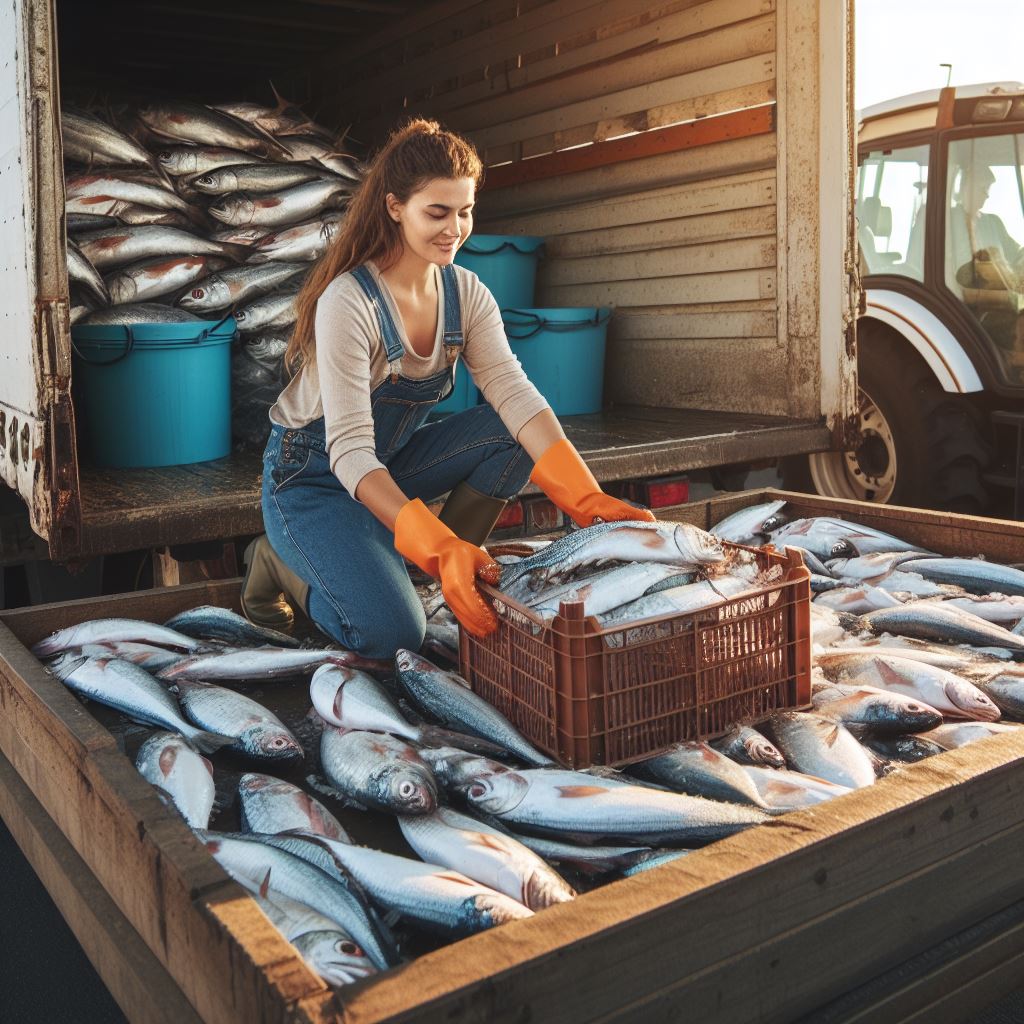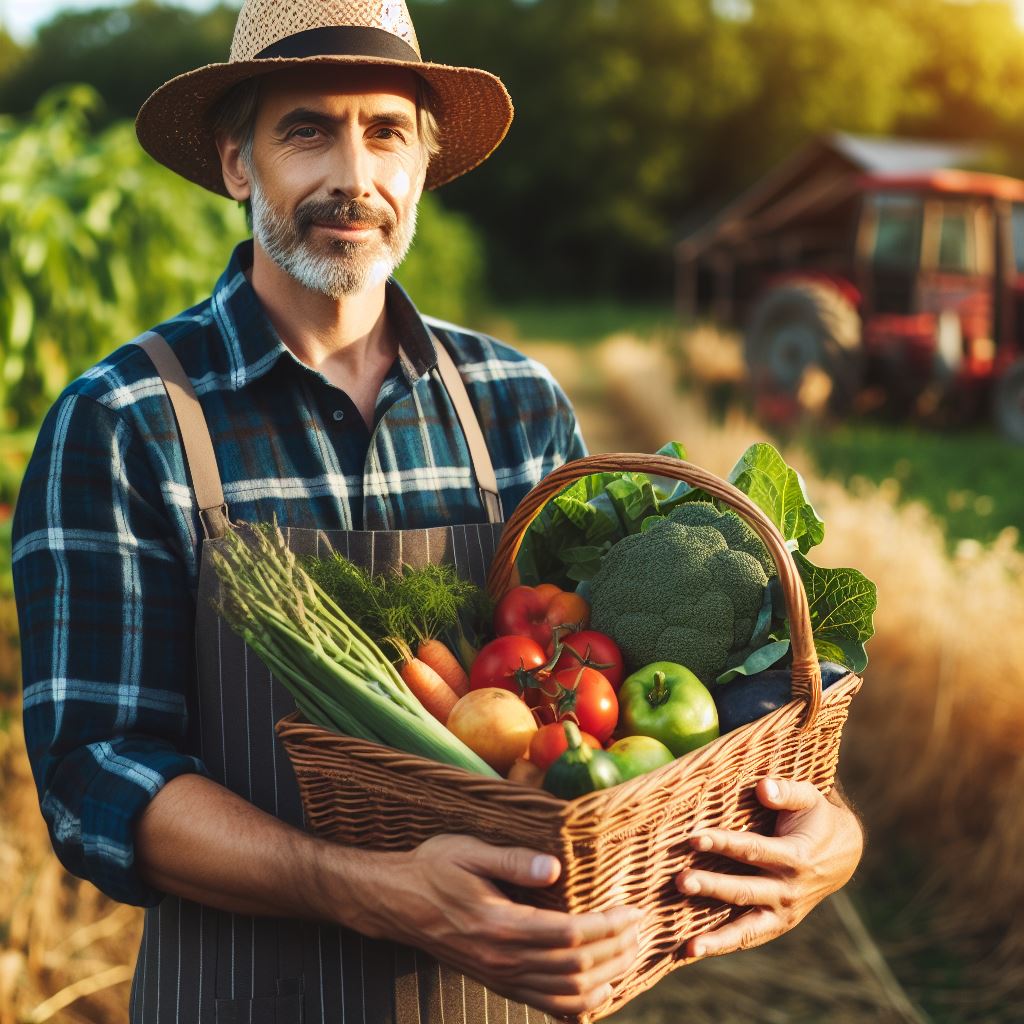Introduction
Importance of insurance in farming
Insurance plays a crucial role in farming by providing financial protection against unforeseen risks.
Including insurance in a farm business plan ensures stability and can greatly benefit farmers.
It safeguards farmers’ investments, stabilizes income, and fosters resilience, enabling sustainable agriculture and ensuring livelihoods endure amid uncertainties.
Brief overview of the benefits of having insurance as a part of a farm business plan
Insurance safeguards farm businesses from unforeseen risks, providing financial protection against crop failures, property damage, or liability claims.
It ensures continuity in operations, promotes financial stability, and helps farmers recover from setbacks, contributing to the overall sustainability and resilience of the farm.
Understanding Farm Insurance
When it comes to farm stability, evaluating risks and choosing appropriate coverage options is crucial.
Definition and types of farm insurance coverage
Insurance provides protection against unforeseen events or accidents that could lead to financial losses for farmers.
It is essential to understand the various types of farm insurance coverage available and select the appropriate options based on the farm’s specific needs.
Property and casualty insurance
This type of insurance covers the farm property, such as buildings, equipment, and vehicles, against damages or loss due to fire, theft, or natural disasters.
Crop insurance
Crop insurance safeguards farmers against potential losses due to crop failure caused by adverse weather conditions, disease outbreaks, or other factors that are beyond their control.
Liability insurance
Liability insurance protects farmers in the event of accidents or injuries occurring on their premises.
It covers legal costs and any damages awarded to third parties.
Livestock insurance
Livestock insurance provides coverage for farmers against losses resulting from the death or injury of their livestock due to accidents, disease outbreaks, or theft.
Importance of evaluating risks and choosing appropriate coverage options
Evaluating risks is essential to determine the type and level of coverage required for the farm.
Factors such as the type of farming activities, geographical location, and potential risks should be considered.
Transform Your Agribusiness
Unlock your farm's potential with expert advice tailored to your needs. Get actionable steps that drive real results.
Get StartedExploring different insurance providers and finding the right fit for the farm’s needs
When choosing an insurance provider, it is crucial to consider their reputation, financial stability, and the quality of their coverage options.
The farm owner should research and compare different providers, their policies, and the level of customer service they offer.
Seeking recommendations from other farmers or industry experts can also be helpful.
It is important to find an insurance provider that understands the specific risks and challenges faced by farmers and offers tailored coverage options to meet their needs.
In general, farm insurance plays a vital role in ensuring the stability and financial security of farms.
Evaluating risks, understanding the different types of coverage available, and choosing the right insurance provider are essential steps for farm owners to protect their investments and livelihoods.
Read: Hydroponics: Revolution in Farming
Benefits of Farm Insurance
A farm insurance policy offers several benefits that are crucial for the stability and success of agricultural operations.
Here are some of the key advantages:
Protection against unexpected losses and natural disasters
Farmers face various risks, such as crop failure, livestock death, and property damage due to fire, storms, or floods.
Farm insurance provides coverage for these unexpected events, ensuring farmers can recover financially and continue their operations.
Financial assistance in repairing or replacing damaged property or equipment
In case of any damage to farm buildings, machinery, or equipment, farm insurance provides financial assistance to repair or replace them.
This support helps farmers minimize downtime and maintain productivity.
Safeguarding against liability claims and legal expenses
Farming involves various risks that can lead to accidents or losses for third parties.
Farm insurance protects farmers from potential liability claims and covers legal expenses, ensuring financial stability in such circumstances.
Stabilizing farm income and guaranteeing future operations
By mitigating the impact of unexpected events, farm insurance helps stabilize farm income.
This stability enables farmers to plan for the future, invest in their operations, and ensure the continuity of their agricultural activities.
Support for sustainable farming practices and environmental protection
Many farm insurance policies offer coverage options that promote sustainable farming practices and environmental protection.
These options encourage farmers to adopt eco-friendly methods and provide financial support for implementing them.
In essence, farm insurance plays a vital role in providing necessary protection and support to farmers.
It protects against losses caused by natural disasters, provides financial assistance in repairing or replacing damaged property, and safeguards against liability claims and legal expenses.
Furthermore, it stabilizes farm income, guaranteeing future operations, and supports sustainable farming practices and environmental protection.
By availing farm insurance, farmers can ensure the stability, profitability, and sustainability of their agricultural businesses.
Read: Sustainable Practices in Modern Farming
Showcase Your Farming Business
Publish your professional farming services profile on our blog for a one-time fee of $200 and reach a dedicated audience of farmers and agribusiness owners.
Publish Your ProfileAssessing Farm Risks and Insurance Needs
Identifying potential risks specific to the farm operation
- Natural disasters such as hurricanes, floods, and droughts.
- Crop failure or diseases.
- Equipment breakdowns or accidents.
- Livestock accidents or health issues.
- Market volatility and price fluctuations.
Evaluating the financial impact of these risks
It is crucial for farmers to understand the potential financial implications of various risks.
Assessing the impact of natural disasters, crop failures, equipment breakdowns, livestock accidents, and market fluctuations helps to determine the level of risk exposure.
Determining the necessary coverage options for adequate protection
Once the risks are identified and their financial impact evaluated, farmers can then determine the appropriate insurance coverage to mitigate these risks.
Different types of insurance policies are available to provide protection against specific risks.
Hurricanes, floods, and droughts
For natural disasters such as hurricanes, floods, and droughts, farmers can consider purchasing property insurance.
This coverage protects against damage to buildings, equipment, and crops caused by these events.
Crop failure or diseases
Crop failure or diseases can be covered under a crop insurance policy.
This type of insurance compensates farmers for losses resulting from crop failures, pests, and diseases.
It provides financial support during difficult times and helps to ensure a stable income for farmers.
Equipment breakdowns or accidents
Equipment breakdowns or accidents can lead to significant financial losses.
Farmers can safeguard against these risks by obtaining equipment breakdown insurance.
This coverage protects machinery and equipment against sudden and accidental breakdowns, providing funds for repairs or replacements.
Livestock accidents and health issues
Livestock accidents and health issues can be covered through livestock insurance.
This policy provides protection against the financial losses incurred due to the death, injury, or disease of livestock.
It helps farmers maintain the health and productivity of their livestock operations.
Market volatility and price fluctuations
Market volatility and price fluctuations pose a constant threat to farm profitability.
To manage this risk, farmers can consider purchasing price risk insurance or revenue insurance.
These policies provide coverage against unexpected drops in commodity prices or revenue, ensuring a stable income for farmers.
When determining the necessary coverage options, farmers should carefully analyze their specific needs and budget.
They should consult with insurance professionals who specialize in agricultural insurance to ensure they have adequate protection against potential risks.
In summary, assessing farm risks and insurance needs is an essential step in maintaining stability and financial security.
By identifying potential risks, evaluating their financial impact, and determining the necessary coverage options, farmers can safeguard their operations and ensure long-term viability in an unpredictable agricultural environment.
Read: Data-Driven Farming: Key to Agri Success
Choosing the Right Insurance Provider and Policy
Researching reputable insurance providers
When selecting an insurance provider for your farm, it is crucial to conduct thorough research.
Look for insurance companies with a strong reputation and extensive experience in the agricultural industry.
Read reviews and testimonials from other farmers to get an idea of the provider’s reliability.
Consider their financial stability, as you want an insurer that can fulfill their commitments in case of a claim.
Comparing coverage options, deductibles, and premiums
One of the most important factors to consider when choosing an insurance policy is the coverage it offers.
Determine the specific risks your farm is exposed to and find a policy that adequately protects against them.
Compare the deductibles that different policies offer, as this will affect how much you must pay out of pocket before the insurance kicks in.
Additionally, compare the premiums of various providers to ensure you are getting the best value for your money.
Seeking recommendations from fellow farmers or agricultural organizations
It can be helpful to seek recommendations from other farmers or agricultural organizations in your area.
These individuals and groups have likely dealt with insurance providers and policies firsthand and can provide valuable insights.
They can share their experiences and help you navigate through the myriad of options available.
Reviewing policy terms and conditions
Before committing to an insurance policy, carefully review the terms and conditions.
Make sure you understand what is covered, what is excluded, and the extent of the coverage.
If there are any ambiguities or doubts, seek clarification from the insurance provider.
Ensure that the policy aligns with your farm’s specific needs and requirements.
Consulting with insurance agents or brokers for personalized advice and assistance
Consulting with insurance agents or brokers can provide you with personalized advice and assistance.
These professionals have in-depth knowledge of the insurance industry and can help guide you towards the right policy.
Showcase Your Farming Business
Publish your professional farming services profile on our blog for a one-time fee of $200 and reach a dedicated audience of farmers and agribusiness owners.
Publish Your ProfileThey can assess your farm’s unique situation and recommend appropriate coverage options.
Additionally, they can assist you in navigating the complexities of insurance jargon and paperwork.
Read: Robotics in Farming: The Future of Agri-Tech

Implementing an Insurance Plan
Determining the appropriate coverage limits
Insufficient coverage can leave farms vulnerable to financial losses in the face of unforeseen events.
- Evaluate the farm’s assets and risks: Consider the value of the farm’s buildings, equipment, and livestock, as well as the potential risks they face.
- Assess historical losses: Analyze past incidents to identify recurring risks and their associated costs.
- Consult with insurance professionals: Seek guidance from experts who can help determine the coverage needed to adequately protect the farm.
- Review and update coverage periodically: Regularly reassess the coverage limits to ensure they align with the farm’s changing needs.
Setting a realistic budget for insurance expenses
Proper budgeting ensures that farms allocate sufficient funds to insurance while maintaining financial stability.
- Analyze the farm’s financial standing: Assess the farm’s income, expenses, and overall financial situation.
- Consider potential risks: Take into account the likelihood and potential magnitude of different risks faced by the farm.
- Research insurance options: Compare quotes from multiple providers to find coverage that fits within the farm’s budget.
- Factor in deductible costs: Calculate the deductible amount that the farm can comfortably afford.
- Balance coverage and cost: Find a balance between adequate coverage and manageable insurance expenses.
Establishing a system for regular policy reviews and updates
Periodic policy reviews ensure that insurance coverage remains relevant and effective.
- Set a regular review schedule: Determine a frequency for reviewing insurance policies (e.g., annually or biannually).
- Engage with insurance agents: Consult with insurance professionals to assess the adequacy of the current coverage.
- Consider changes in the farm’s operations: Evaluate modifications in farming practices or asset values that may necessitate policy updates.
- Modify coverage as needed: Adjust insurance policies to reflect changes in the farm’s risk profile and asset base.
Training employees on insurance-related protocols and procedures
Employee education is essential to ensure everyone understands how insurance impacts farm operations and responsibilities.
- Create training programs: Develop formal training programs to educate employees about insurance-related policies and procedures.
- Explain coverage details: Ensure employees understand what is covered by insurance and the implications of certain claims.
- Communicate the claims process: Outline the steps employees should follow in the event of an insurable incident.
- Promote risk awareness: Foster a culture of risk awareness by emphasizing the importance of safety and prevention measures.
Integrating insurance considerations into the overall farm risk management strategy
Insurance should be an integral component of a comprehensive farm risk management plan.
- Identify all potential risks: Conduct a thorough risk analysis to determine all possible sources of losses.
- Implement risk mitigation measures: Take proactive steps to minimize the likelihood and impact of identified risks.
- Assess insurance as a risk transfer tool: Evaluate how insurance can help transfer certain risks to mitigate financial burden.
- Coordinate insurance with other risk management strategies: Ensure insurance aligns with other risk management efforts, such as emergency response plans.
- Regularly review and update the overall risk management plan: Continuously monitor and refine the farm’s risk management strategy, including insurance components.
By implementing an insurance plan that includes appropriate coverage limits, a realistic budget, regular policy reviews, employee training, and integration with the overall risk management strategy, farms can achieve greater stability and resilience in the face of unforeseen events.
Discover More: Eco-Farming Finance: Smart Strategies
Conclusion
Recap of the importance of insurance for farm stability
Insurance is crucial for farm stability as it provides financial protection against unforeseen risks.
Encouragement for farmers to actively seek and maintain proper insurance coverage
Farmers, prioritize your peace of mind and financial stability by actively seeking and maintaining comprehensive insurance coverage.
Protect your hard work from unforeseen challenges.
Insurance is a crucial investment, offering a safety net that ensures the resilience and sustainability of your farm business in the face of uncertainties.
Final thoughts on how insurance can contribute to long-term sustainability and success in farming
Farmers are strongly urged to actively search for and maintain adequate insurance coverage.
In closing, insurance plays a vital role in ensuring long-term sustainability and success in farming.




